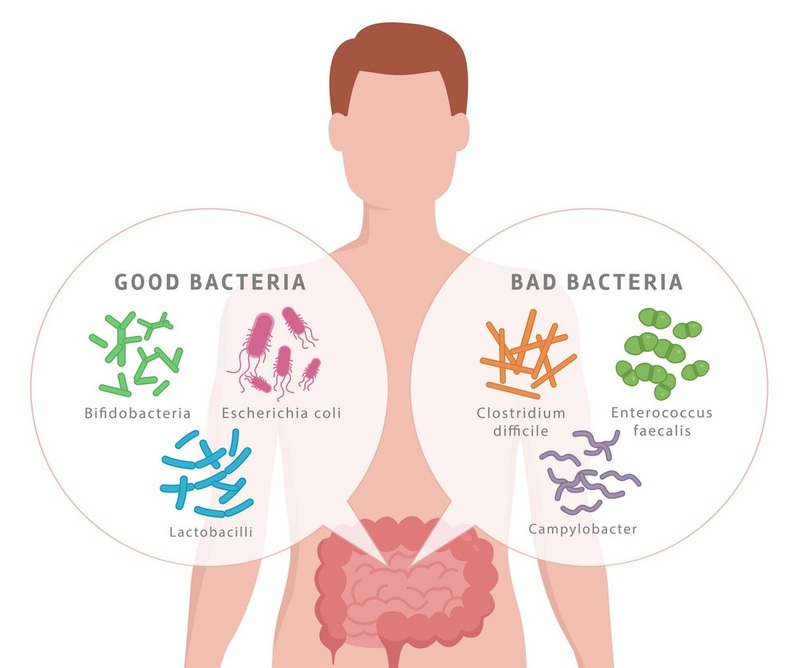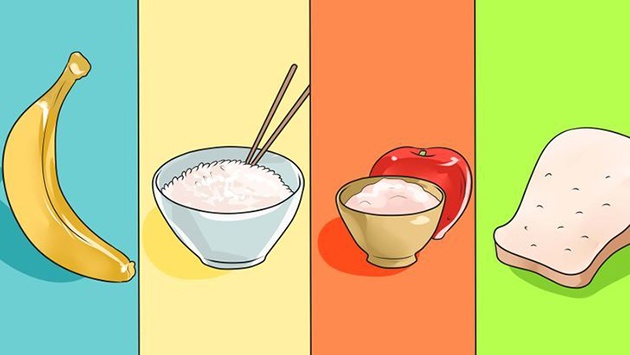Diarrhea is one of the most common digestive diseases, occurring in both adults and children. The condition is easily recognized by signs of frequent bowel movements, loose stools with unusual water.
Typically, the condition can progress from mild to severe and life-threatening if not controlled promptly. Therefore, as soon as patients recognize signs of the disorder, they should proactively seek medical attention for early treatment to avoid negative effects on their health.
1. Causes of diarrhea
Infection with microorganisms that cause intestinal diseases
This is the main cause of diarrhea, most commonly when the body consumes unsanitary food containing Salmonella, Clostridium, staph bacteria,... which will lead to poisoning.
When these agents enter the body, they carry pathogens and stimulate intestinal tissue, causing inflammation.

Harmful bacteria cause diarrhea
Not maintaining hygiene
Poor hygiene conditions in living space, personal belongings, body, food, etc. are also one of the leading causes that increase the risk of spreading bacteria that cause infectious diarrhea and are an opportunity for bacteria to spread.
Harmful organisms enter the digestive tract.
Disturbance of resident intestinal microflora
The habit of overusing antibiotics will unintentionally destroy beneficial bacteria, leading to an imbalance in the intestinal microflora. From there, the ability to absorb nutrients is poor, intestinal motility increases, causing frequent bowel movements, loose, loose or unformed stools.
Food poisoning
This is a consequence of using spoiled, contaminated food or containing toxic additives. Food poisoning can have obvious symptoms such as: abdominal pain, severe diarrhea after eating, high fever, diarrhea, vomiting, etc.
Other causes such as colitis, irritable bowel syndrome,...
2. Special notes on eating when having diarrhea
People with diarrhea can apply the BRAT diet including: bananas, white rice, apple jam and bread. These foods are usually benign, low in fiber, will not make symptoms of diarrhea or abdominal pain worse, and choose the following foods:

BRAT diet
Foods that are easy to digest: Help the body easily absorb and digest, and at the same time, their frugality helps reduce intestinal activity during recovery.
Fruits are good for the digestive system: Some fruits with moderate fiber content, rich in vitamins and minerals help replenish minerals and water lost during diarrhea and are also very good for people with diarrhea. Commonly recommended fruits for diarrhea include: bananas, apples, guavas,...
Protein-rich, low-fat meats: Pork and chicken are two benign meats, rich in easy-to-digest protein, suitable for people with diarrhea.
Yogurt: Increasing beneficial bacteria in the menu will help improve intestinal motility as well as enhance digestive system health.
An important solution is to supplement beneficial bacteria strains for the digestive system, helping to balance the intestinal microflora and effectively treat digestive disorders, especially diarrhea.
3. What should you avoid when you have stomach pain and diarrhea?
Foods and drinks that should be avoided when suffering from diarrhea and abdominal pain include:
- Milk and dairy products
- Fried, greasy foods
- Spicy and sour food
- Processed foods containing additives
- Raw vegetables and fruits that have not been thoroughly processed
- Raw and processed foods
- Wine
- Coffee, soda, caffeinated or carbonated drinks.
See more product information here
